Interpretation boards installed at Greens Biodiversity Sanctuary, India
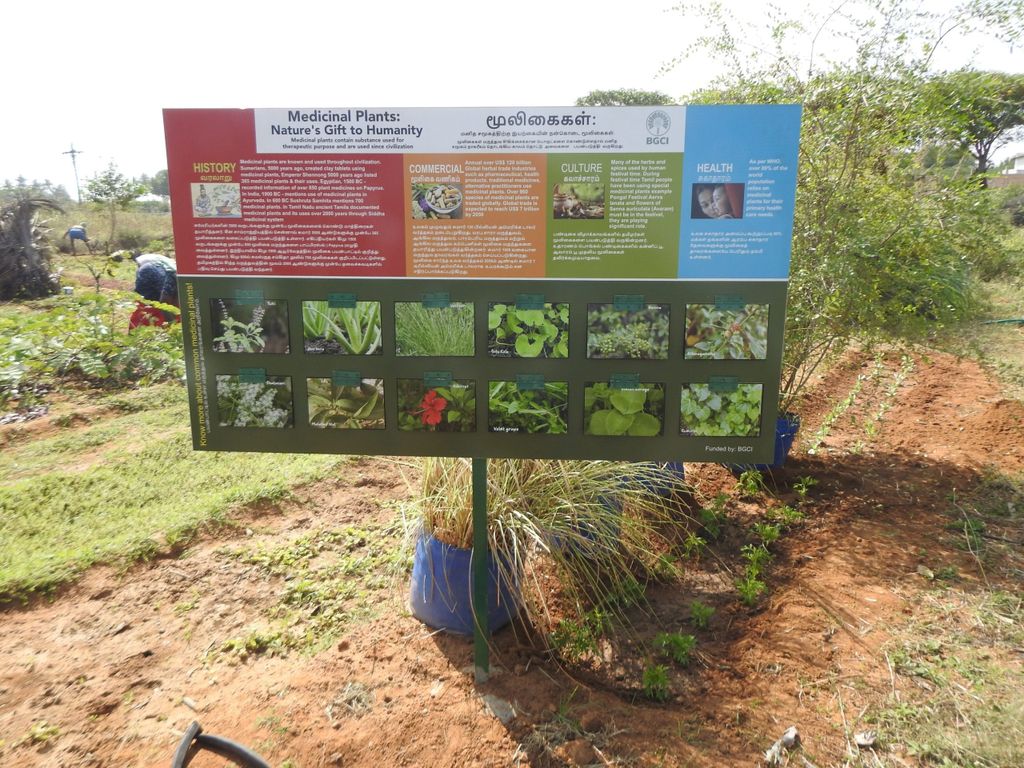
-
Status of project
Completed -
Region
Asia -
Country
India -
Programme
BGCI -
Workstream
Saving Plants -
Topic
Public Engagement
Funded via Minnesota Landscape Arboretum (MLA)
Project Completed: 2023
Institution: Greens Biodiversity Sanctuary
Interpretation boards installed for new outdoor education programmes
Greens Biodiversity Sanctuary is a project in its early stages, and Outdoor Education is at the heart of their mission.
The aim of this project was to develop high quality interpretation signs in their new gardens (Forest Garden and Medicinal Plant Garden) and to significantly enhance the overall impact and effectiveness of the two areas. A total of 4 boards were designed and these will support Greens outdoor education programmes.
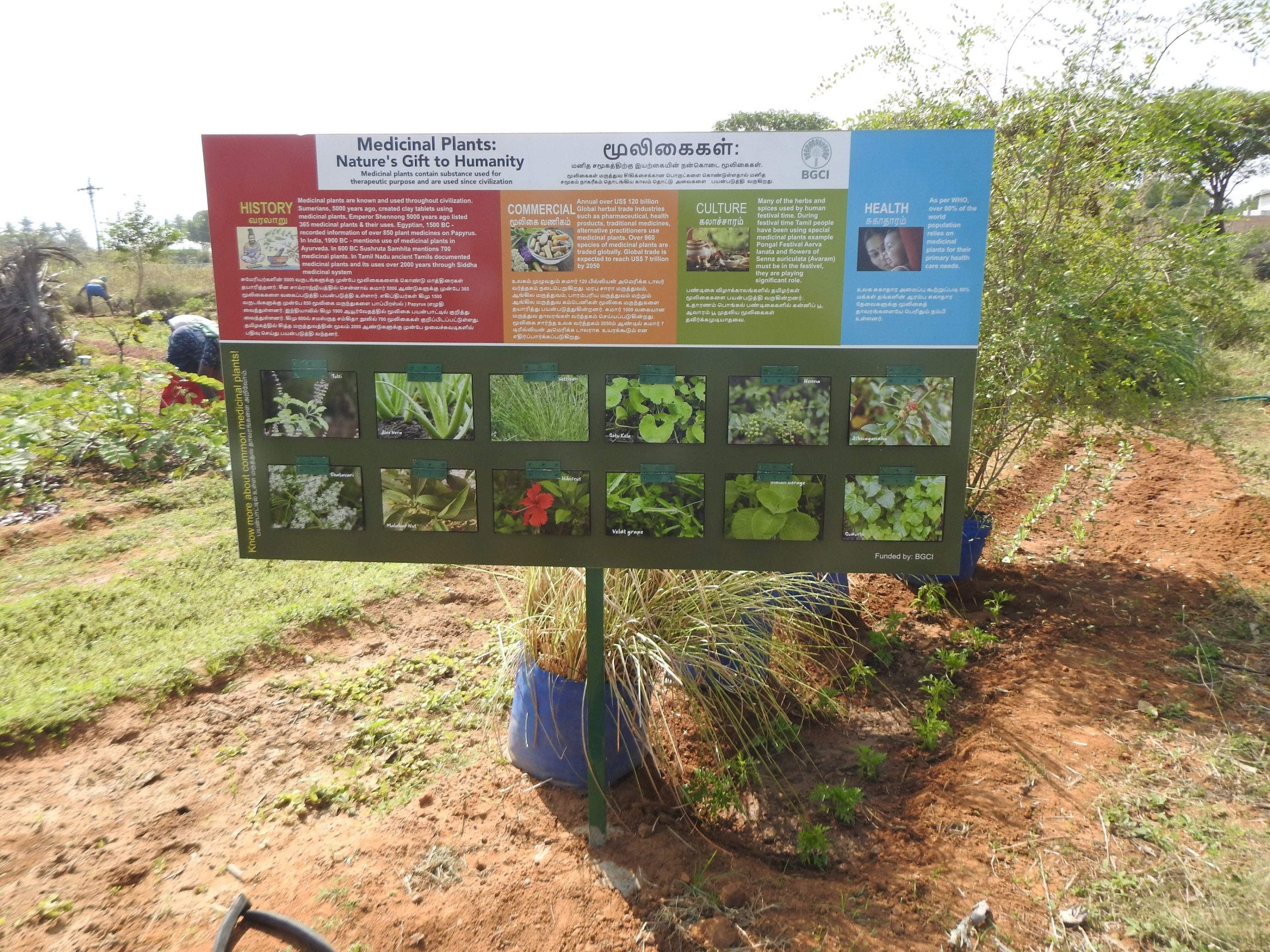
Board 1 is located in the Herbal Garden, where there is a school medicinal plant demo garden. The board shows the importance of medicinal plants, how they are used economically, culturally and in religion and the importance of conservation. The board is “interactive”. Underneath the picture of each plant is the description.
Board 2 is located in the Arboretum beside the Ficus collection and describes this keystone species.
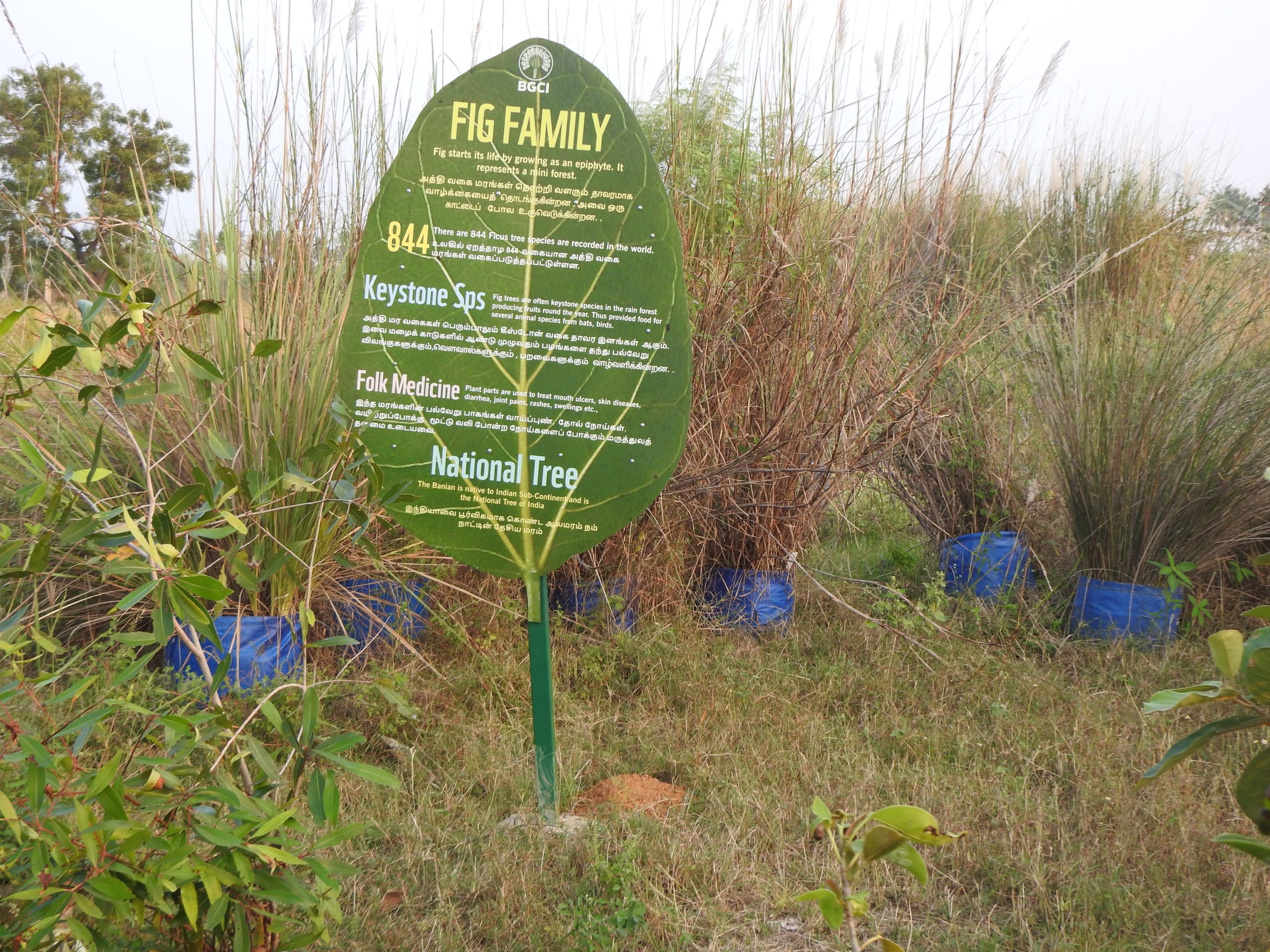
Board 3 is in the Forest Area and explains the importance of the Forest Ecosystems. It describes 5 different types of forest and is also interactive – you can slide the panels on the right, to reveal an image underneath.
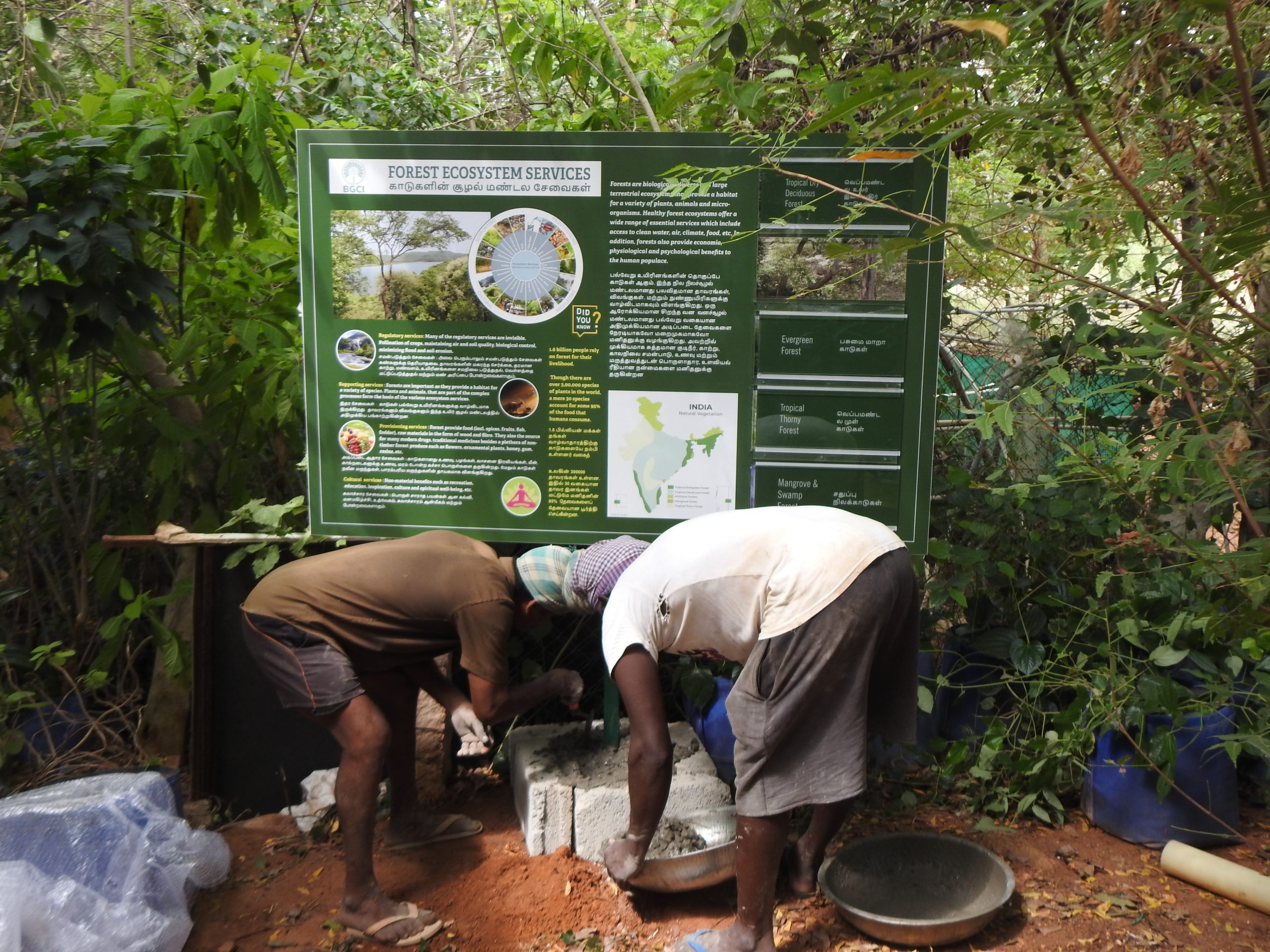
Finally, Board 4 – complementary to Board 3 and also in the Arboretum – explains the importance of the forest as “lungs” connecting the forest directly to the students’ own bodies, so they can easily visualise the importance of the forest.
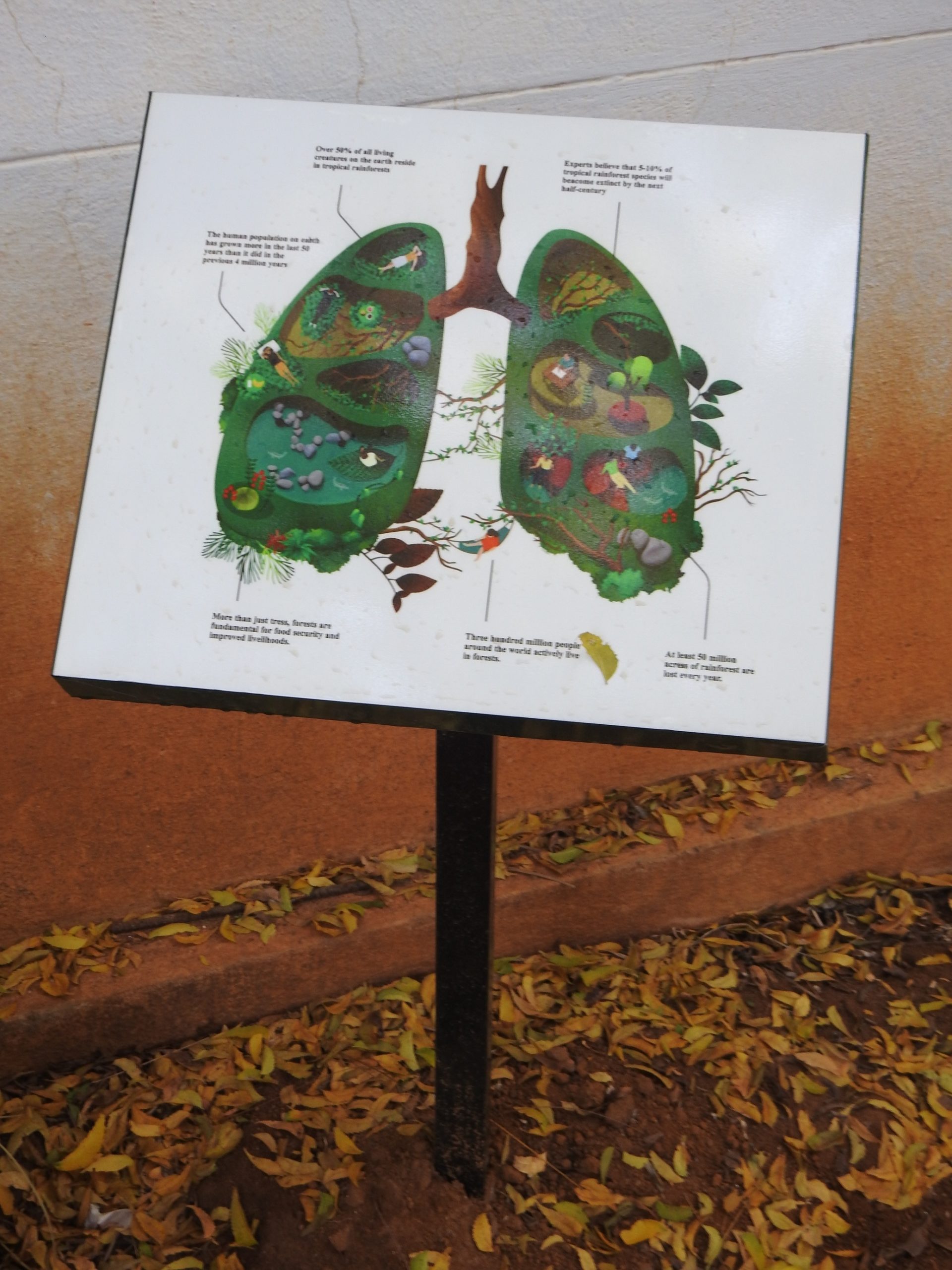
The main challenges faced during this project, were producing the boards in both English and Tamil. It took a considerable amount of work to collect and fact-check all the information. Translating from English to Tamil was very difficult as means of expression in the two languages are very different. There were many errors by the printers in Bangalore as they speak Kannada not Tamil. However, the challenge was overcome with patience and pertinacity.
All the boards were successfully erected and Greens are now working with the Dept of Education Tamil Nadu to seek £1million in funding for an outdoor education programme to reach 12,500 students in 250 schools. The project will address plant blindness, composting of school waste and the creation of school medicinal plant gardens. The boards have been integral to demonstrating to the DoE Greens capability to deliver such a project.
The boards exceeded the original plans, as they hadn’t originally anticipated for any of them to be interactive. This feature encourages students to engage with the information more directly and the boards have impressed visitors to the garden.